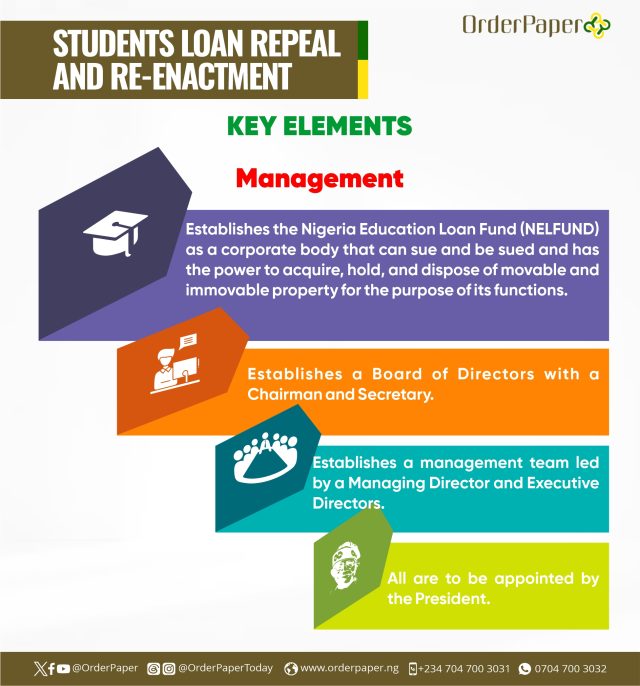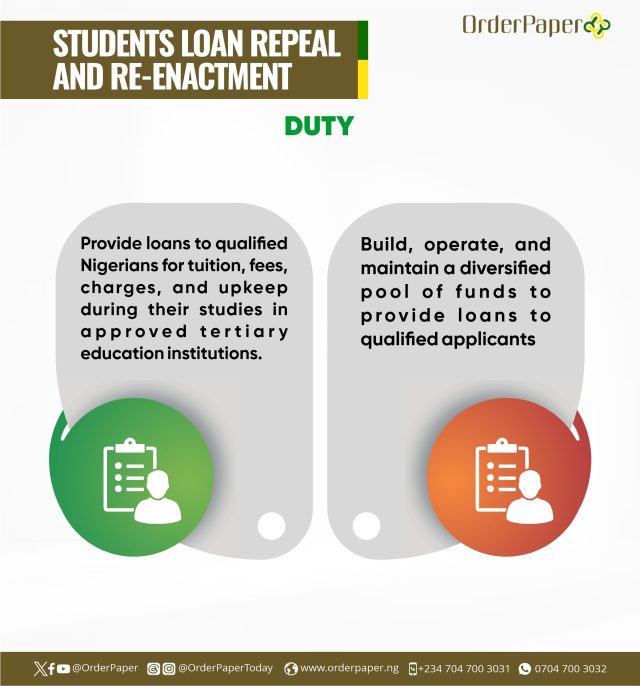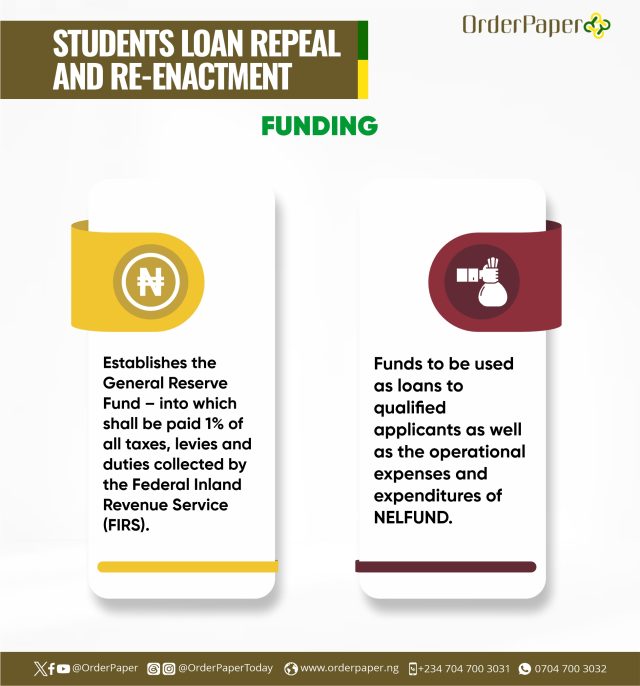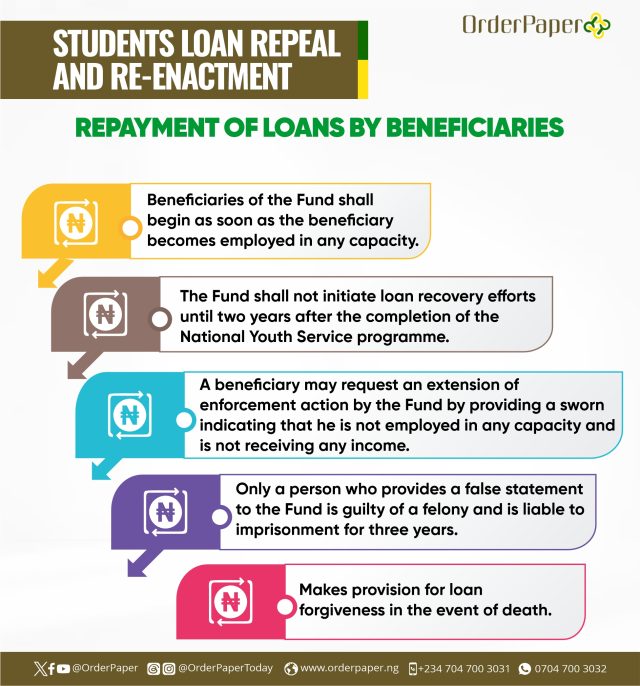What You Need to Know About Student Loan Repeal and Re-enactment Bill
The Student Loan (Access to Higher Education) Act 2023 was signed into law by President Bola Ahmed Tinubu GCFR on 12th June 2023.
Access to Higher Education (Repeal and Re-Enactment) Bill 2024 was presented to the National Assembly by President Bola Ahmed Tinubu GCFR on Thursday, 14th March 2024.
Now to be known as – Students Loans (Access to Higher Education Repeal and Re-Enactment) Bill 2024.
Key elements

Management
Establishes the Nigeria Education Loan Fund (NELFUND) as a corporate body that can sue and be sued and has the power to acquire, hold, and dispose of movable and immovable property for the purpose of its functions.
Establishes a Board of Directors with a Chairman and Secretary.
Establishes a management team led by a Managing Director and Executive Directors.
All are to be appointed by the President.

Duty
Provide loans to qualified Nigerians for tuition, fees, charges, and upkeep during their studies in approved tertiary education institutions.
Build, operate, and maintain a diversified pool of funds to provide loans to qualified applicants.

Funding
Establishes the General Reserve Fund – into which shall be paid 1% of all taxes, levies and duties collected by the Federal Inland Revenue Service (FIRS).
Funds are to be used as loans to qualified applicants as well as the operational expenses and expenditures of NELFUND.

Application
Students applying for the loan can not be disqualified based on their parent’s loan history.
Removes the family income threshold so Nigerian students can apply for these loans and accept responsibility for repayment according to the Fund’s guidelines.
Removes the guarantor requirement so that students can apply for and receive loans.
Ensures a minimum national spread of loans approved and disbursed in each financial year.
Loans to cover tuition and other fees payable to the school and maintenance allowance payable to the student.

Repayment of loans by beneficiaries
– Beneficiaries of the Fund shall begin as soon as the beneficiary becomes employed in any capacity.
The Fund shall not initiate loan recovery efforts until two years after the completion of the National Youth Service programme.
A beneficiary may request an extension of enforcement action by the Fund by providing a sworn indicating that he is not employed in any capacity and is not receiving any income.
Only a person who provides a false statement to the Fund is guilty of a felony and is liable to imprisonment for three years.
Makes provision for loan forgiveness in the event of death.
Source: orderpaper.ng



